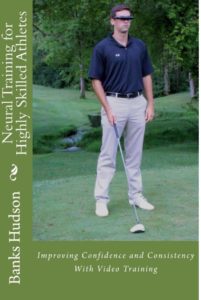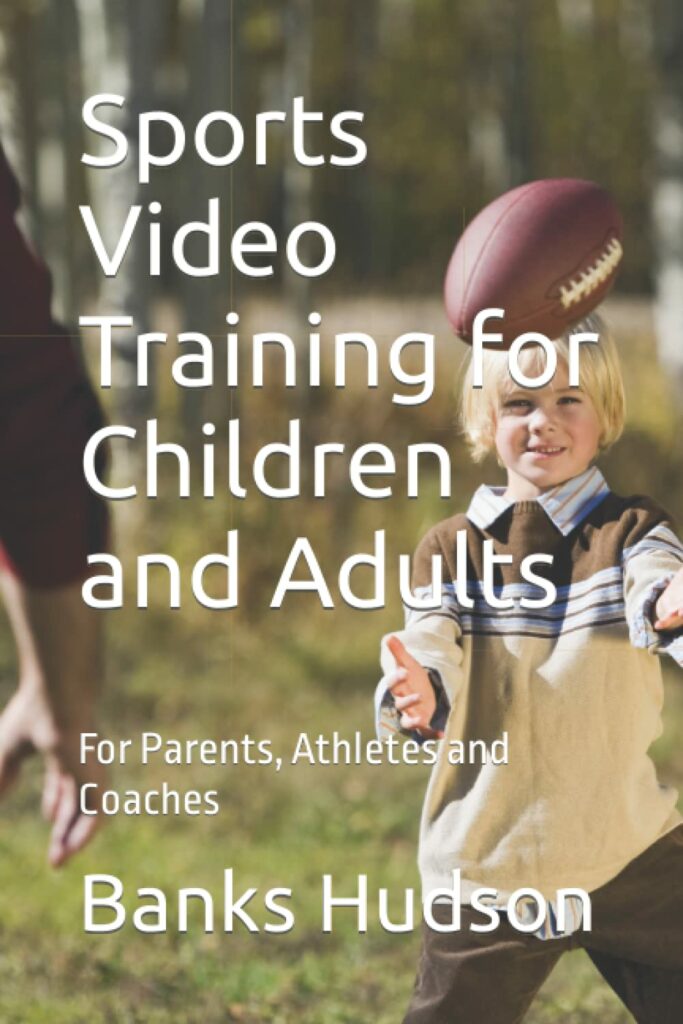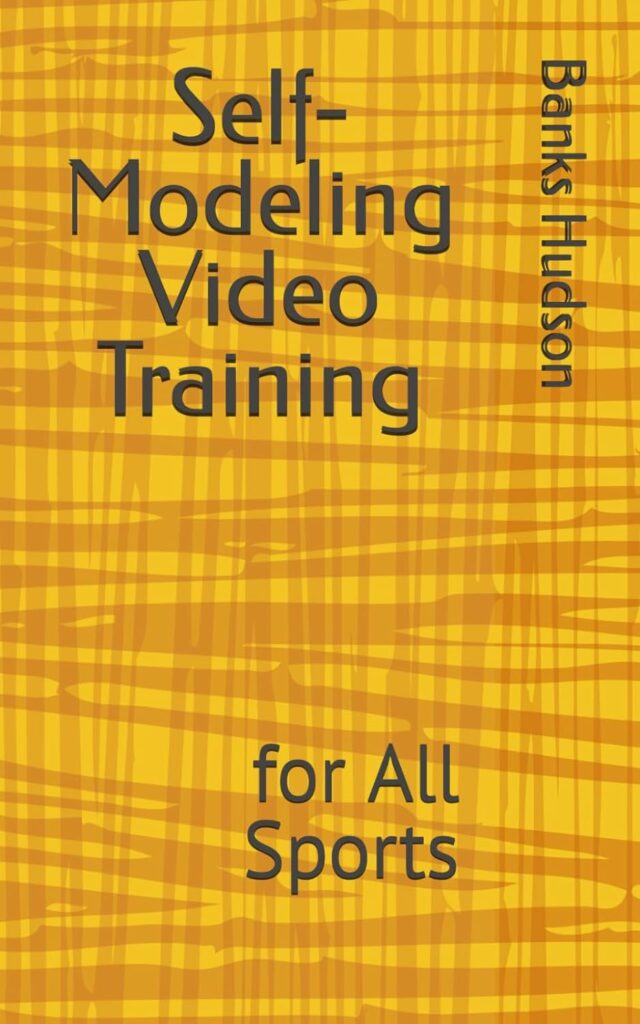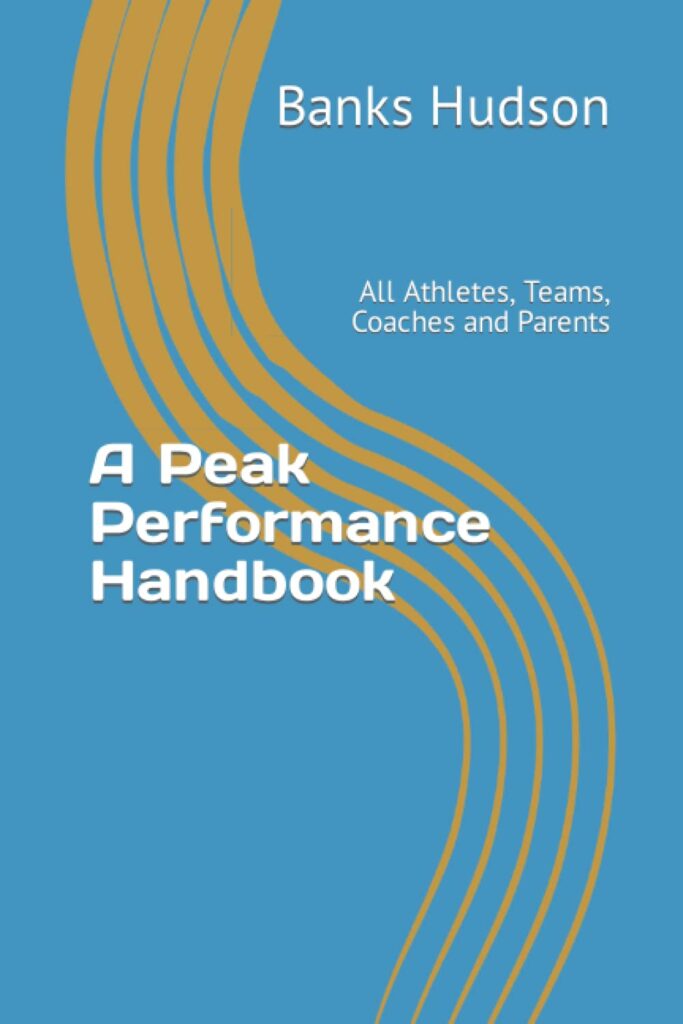Some of you have probably been using videos in one form or another for years and have found them helpful. These include but are not limited to analyzing mechanical skills in various forms of video instruction used by coaches and teaching professionals.
The focus of my system is not video instruction, but video training. The training is designed to help you access and execute more consistently your highest skill level and at the same time build a higher level of confidence.
The length of the video training is 6 minutes. The video consists of 2 phases. The first and most critical phase is the 1 minute preparation phase designed to prepare your mind to maximize the effectiveness of the training. The second phase is the core training phase designed by you and your coaches, This second phase consists of you watching yourself execute picture perfect skills over and over again at different speeds and different angles with audio suggestions to enhance and build confidence.
Research shows that the core training stimulates, sharpens and strengthens the mechanical skill in some of the same ways this happens with repetitive practice. The same neural pathways stimulated by your highest level of execution would be similarly activated and reinforced with the training video. In other words, the nervous system would react as if it were physically performing the skill.
In another study involving “mirror neurons” the research team came to the same conclusion that by watching yourself perform the skill, you reinforce and stimulate the neural blueprint of that skill. Another researcher stated that by watching the skill, it is imprinted more clearly into the brain and is therefore an effective way to enhance motor skill performance.
I mentioned at the end of the training manual that I would put more information on this website for those wanting to learn more about anchoring. That information can be found in my training manual, A Peak Performance Handbook, (see below in this link), Section IV.
Leadership Training for Mental Toughness in Football
Football coaches live with an ongoing concern for the following: letdowns in and between games, lack of consistency, mental mistakes, sluggish practices, self-defeating behavior, outside distractions, lapse in motivation and a passion for winning.
Coaches do everything they can to prevent these distractions by continuous motivational talks and the use of motivational techniques. These help some, but the key to addressing these issues must come from the within the players.
This manual contains a step-by-step leadership training program for the players designed to address preventing all the situations listed above and with the goal of heightened mental toughness in all phases of practice and competition.
Sports Video Training for Children and Adults
Steven DeVore, the founder of SyberVision along with Dr. Karl H. Pribram, a renowned brain scientist at Stanford University researched in the 1980’s the theory that an athlete could improve mechanical skills by watching a video of a model athlete repeatedly performing mechanically picture-perfect skills.
They found by watching the video that through the sensory imaging, the nervous system would respond to the observed modeled skills almost as if the muscles and body were physically performing the desired action over and over.
This handbook uses that research and develops the structure of a sports video training system designed to maximize accelerated learning in children and adult athletes. It provides an effective and exciting supplement to normal athletic training and can provide a mechanical and mental edge over opponents.
Self-Modeling Video Training
The focus of this system is not video instruction, but video training. The training is designed to help the athlete access and execute more consistently their highest skill level and at the same time build a higher level of confidence.
The core phase of the training consists of watching the athlete execute picture perfect skills over and over during training and/or competition with personal audio suggestions to enhance and build confidence.
The research shows the core training stimulates, sharpens, and strengthens the mechanical skill in some of the same ways this happens with repetitive practice. The same neural pathways stimulated by perfect practice would be similarly activated and reinforced with the training video. In other words, the nervous system would react as if it were physically performing the skill.
A Peak Performance Handbook
This handbook serves as a compilation of the author’s handbooks on sports performance and addresses all athletes, teams, coaches, and parents in all sports to include high school, college and professional.
Section I explores the nature of peak performance.
Section II section contains a leadership training program to address the goal of athletes/players taking ownership of the responsibility for everything related to the mental challenges in practice and competition. One benefit of this training is it teaches mental toughness. The training uses a football team as an example.
Section III focuses on the training designed to strengthen mental alertness,
concentration and attention to each moment in practice, execution and competition.
Section IV explains the use of anchoring designed to help improve consistency at peak performance and to serve as a shifting device from poor performance to peak performance for individuals and for teams.
Section V is training designed to help athletes access and execute more consistently their highest skill level by watching their execution of picture perfect skills over and over during training and/or competition with personal audio suggestions to enhance and build confidence.






